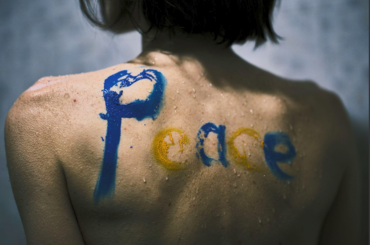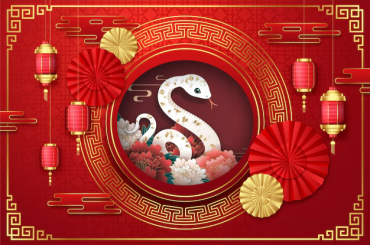I used to think that my critical brain (not to be confused with critical thinking which is an asset), that my criticising brain was what goaded me into self-improvement and learning. It turns out that wasn’t the truth. It was just mean. Now I call it my “bully brain” (BB).
How did I get a brain that found me failing and falling short at every turn? My body wasn’t good enough, my intelligence was lacking, my surroundings were not pleasing, what I owned was not good enough, and on and on. I didn’t take the right courses in school. I didn’t do enough with my ‘potential’.
Oh, and I am a stone-cold addict. Which means I was a crap daughter, mom, friend, student, worker, lover and so on. I also had a low moral structure and no discernible values.
Even when I entered recovery, the drugs and booze left aside, my ethical standards didn’t snap back into place right away. I still had vestiges of my dependence on others and reliance on sex to define myself. It took a while.
Happy, joyous and free were qualities that I wanted, that were promised to me, and I did my best to fake my way through. I wasn’t always faking. In meetings and with others I often forgot myself, my brain mostly went silent and I could BE. But in a moment it could all come rushing back. I was not enough in fill in the blank. There were many, many blanks to fill.
So how did I find contentment and reprieve from my BB? Slowly. One breath at a time, one moment at a time. The trick was to string those moments together to find a “more often than not” reprieve.
The Secret
What was the secret to calming my BB? There are many. This is not a complete list of what works for everyone, but this is what worked for me.
Gratitude:
I know – that old chestnut. It is true, taming thought by focusing on what we have to be grateful for soothes the brain and allows it to absorb, retain and remember the good.
Attitude:
This is how I move out into the world, my actions, my temperament, my belief, my perspective. When I hold the good as possible, when I make choices to be in healthy spaces with supportive people, I can practice my attitude and then have it at the ready when I am challenged.
Noting:
This is the “mindfulness” version of ‘noticing with attention’. You pause in the storytelling of the mind to note, to become aware of, the fact that you ARE telling yourself stories. See if you can find the theme, the redundant mantra of negativity or pessimism. Bust that BB where it is, (smile) and take a moment. Then see if you can tame or reframe it.
“Noting” is especially difficult because we are distracted much of the time. If I am waiting for someone, rather than consciously thinking and noting, I may pick up my phone, click on an app and distract myself from being conscious. The issue here is that the back of the mind may still be churning with criticism while part of the mind is tapping and scrolling. NOTE THIS, too.
Breathing:
Once you are aware of the mind story, before criticising yourself for criticising yourself, take a breath. Inhale slowly, pause. Exhale slowly, deeply, pause. Now repeat.
Maybe there is something to learn here. Perhaps forgiveness and self-consideration can be invoked so you can let go of the BB with love rather than counting is as another thing that is wrong with you.
Acceptance:
See things as they are. Avoid the “magic magnifying mind,” usually of despair, but even exaggerated anticipation and expectation. Practice being right-sized inside and in perspective. The breathing (see above) helps with this. When I put on new glasses to see things as they are, I avoid the rose-colored glasses of illusion and just get the right lens to clarify what I am seeing on the emotional, spiritual and intellectual levels. I respond with appropriately calibrated energy, avoiding a category-ten reaction to a category-three event.
Discernment:
Without black and white thinking, I practice determining what is what. I use judgement – not pre-judgement and not judgmentalism, but my ability to know what is useful from what is no longer useful. Am I feeling anxious or fearful for a helpful reason, or is it from history, from a feeling of disconnection from others, or a concern about myself (being right/wrong, good/bad, enough/not enough and so on)?
Embracing:
Yes, just be with the feelings and let them flow. Whatever I am experiencing is correct. It is my feeling. Is it useful? Can I let it pass through me? Can I avoid hushing it in a cruel way and have a conversation with it? For example, I may be standing in line getting a tea before meeting with someone. This might be a difficult person, I may have qualms. Rather than jumping into the story of how this is all going to go to hell in a handbasket, I might ask myself, “Why is this difficult?” “Can I hold myself and my boundaries with care?” “Is this an old story?” “Do I have room for a new story without hauling the old feelings in to color what is to come?” I don’t deny by feelings, I investigate and embrace them. THEN I let them go.
Loving:
Yes – that old “Course in Miracles” suggestion. Hold all things in infinite love, hold all beings in infinite love. But practice all the above so you can get there with authenticity. Love is something that is hard to fake. I can be nicey-nice, all cheek-bussing and bubbly, but to be authentically present, I find it best to genuinely feel love. This love is for our humanity, our struggles, our challenges, the place we are today in the face of all of this. Me included. I am where I am, doing the best I can. Love. You are where you are, doing the best you can. Love. Avoiding judgement, calming and reframing the BB. Love. Talking to myself with love. Notice your perception shift.
The Result
I have stopped undermining my own happiness. I still offer myself course corrections and I do this lovingly. I avoid stewing in my negative thoughts and rely on my native wisdom and compassion to guide me; both in my treatment of others and in the way I treat myself. There is no longer a huge gap between the two; I am part of the universe I love, and I believe to my core, the universe loves me. Believe me: it loves you, too.








4 Comments
Great article Kyczy. Thanks. And congrats on your new book!
Thank you for sharing your experience, strength and hope.
Hi Kyczy, wow! Awesome read and your first person who spoke about BB. I struggle a lot with BB and other things especially PTSD and I’m Codependent. I’m definitely going to use your write with BB and apply it to my life. Thank you so much for sharing and what you do. Stay Blessed and keep writing and encourage us all and helping others. So thank you.
wow! Awesome read and your first person who spoke about BB. I struggle a lot with BB and other things especially PTSD and I’m Codependent. I’m definitely going to use your write with BB and apply it to my life. Thank you so much for sharing and what you do. Stay Blessed and keep writing and encourage us all and helping others. So thank you.
Dear Kyczy,
I like the way u refer to the BB, so true for me. Very helpful article. Bravo to u for overcoming so much!
Thank u.